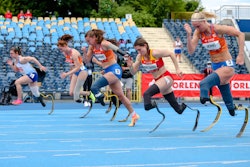HILLBORO Ore.
The parents of a Latino boy who does not speak Spanish filed a $700,000 federal lawsuit against the Hillsboro School District, alleging that educators placed their son in an English as a Second Language program solely because of his ethnicity.
Indhira and Rene Villaraldo, in the lawsuit, say they were never notified or asked for consent to place their son in the program, where he sat confused by a language he did not understand.
Alek Villaraldo, who was considered to be developmentally delayed, spent all of kindergarten in the program and part of the first grade. He is now in second grade and out of the ESL program.
“Those were his first years of school, and they have gone down the drain,” Indhira Villaraldo said.
National ESL experts say the learning program contains safeguards to keep such mistakes from happenings. But errors do occur, especially among children with disabilities because educators are not fully trained in distinguishing learning disabilities from limited English speaking skills.
State and district officials say children are placed in the English as a Second Language program after a process that includes annual assessments and parent participation.
The process begins with a home language survey. If a language besides English is present, the child is given an assessment test, Gail Merrion, director of Hillsboro School District’s ESL and Migrant Program, told The Oregonian newspaper.
If the child has a disability, ESL educators and special education teachers work to find the right fit for the student. Federal law requires that parents are notified and updated about the child’s progress in ESL.
“There is no reason to believe that a parent would not be aware of the child’s placement,” Merrion said.
Merrion said ethnicity and federal funding for ESL do not play a part in the decision to place a child in the program.
Though their son is now in a mainstream classroom, the Villaraldos say they are still worried about his education.
“If that was the beginning, what can we expect later on?” the boy’s mother said. “What if he doesn’t catch up?”
© Copyright 2005 by DiverseEducation.com





















